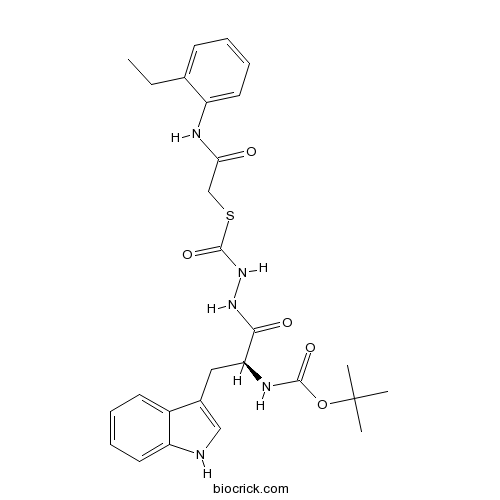Proteases/Proteasome
Proteasomes are protein complexes inside all eukaryotes and archaea, and in some bacteria. In eukaryotes, proteasomes are located in the nucleus and the cytoplasm. The main function of the proteasome is to degrade unneeded or damaged proteins by proteolysis, a chemical reaction that breaks peptide bonds. Enzymes that help such reactions are called proteases. Proteasomes are part of a major mechanism by which cells regulate the concentration of particular proteins and degrade misfolded proteins. The degradation process yields peptides of about seven to eight amino acids long, which can then be further degraded into shorter amino acid sequences and used in synthesizing new proteins. Proteins are tagged for degradation with a small protein called ubiquitin. The tagging reaction is catalyzed by enzymes called ubiquitin ligases. Once a protein is tagged with a single ubiquitin molecule, this is a signal to other ligases to attach additional ubiquitin molecules. The result is a polyubiquitin chain that is bound by the proteasome, allowing it to degrade the tagged protein. NF-
Products for Proteases/Proteasome
- HCV Protease(17)
- DUB(17)
- DPP-4(16)
- Serine Protease(7)
- HIV Integrase(13)
- MMP(19)
- Gamma Secretase(22)
- Calpains(5)
- Caspase(21)
- Other Proteases(12)
- NS3/4a protease(4)
- Thrombin(12)
- HIV Protease(13)
- Cathepsin(12)
- ACE(6)
- Proteasome(24)
- Urokinase(2)
- HSP(33)
- Elastase(5)
- Carboxypeptidase(3)
- Aminopeptidase(6)
- Cat.No. Product Name Information
-
BCC2130
PF-04929113 (SNX-5422)
PF-04929113 (SNX-5422) is a potent and selective HSP90 inhibitor with Kd of 41 nM and induces Her-2 degradation with IC50 of 37 nM. Phase 1/2.
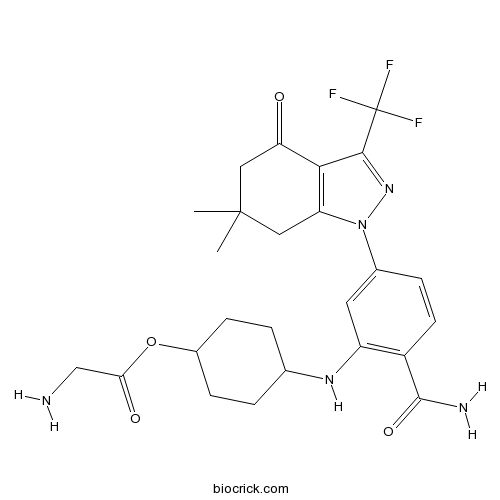
-
BCC1220
Aprotinin
Aprotinin is a bovine pancreatic trypsin inhibitor (BPTI) inhibitor which inhibits trypsin and chymotrypsin with Kis of 0.06 pM and 9 nM, respectively.
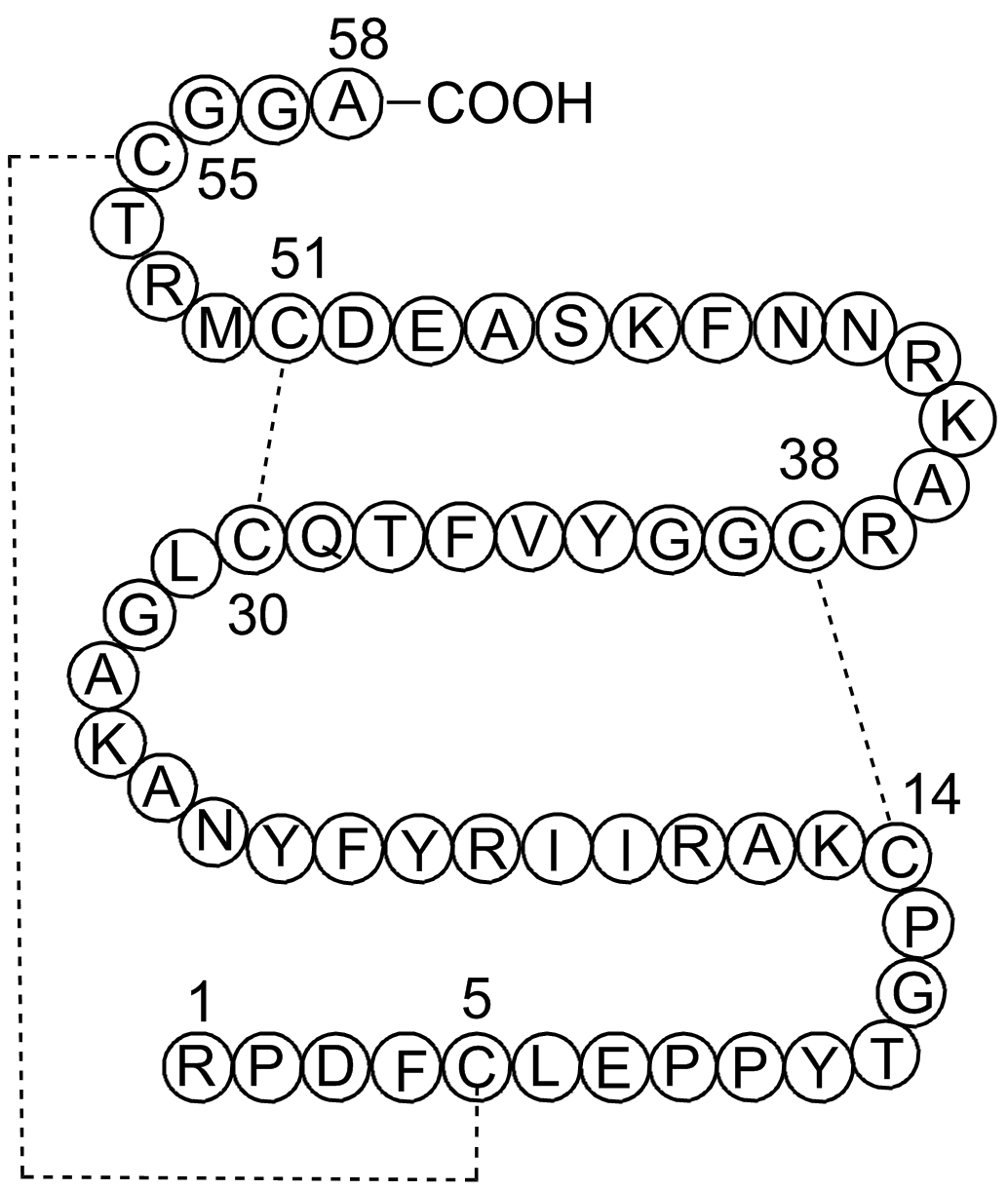
-
BCC5600
EC 144
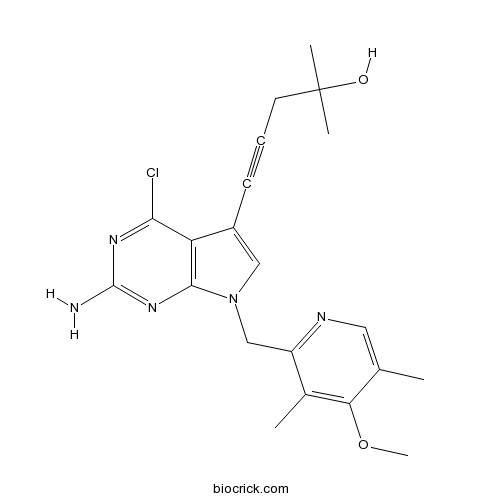
-
BCC1297
17-AAG Hydrochloride
17-AAG Hcl is a potent HSP90 inhibitor with IC50 of 5 nM, having a 100-fold higher binding affinity for HSP90 derived from tumour cells than HSP90 from normal cells.
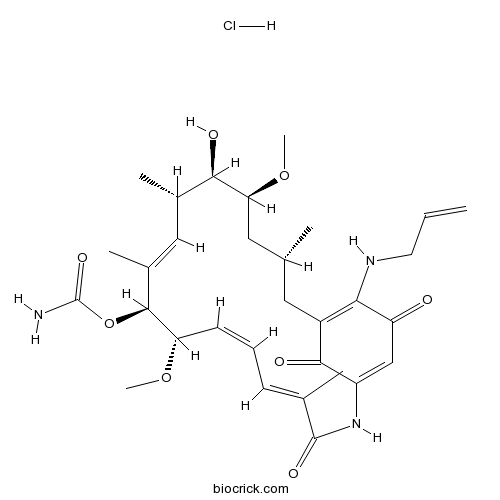
-
BCC2122
AT13387
Onalespib (AT13387) is a long-acting second-generation Hsp90 inhibitor with a Kd of 0.71 nM.
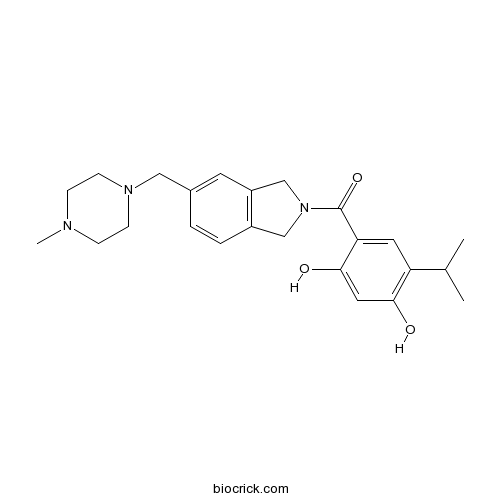
-
BCC5301
Cysteine Protease inhibitor
Cysteine Protease inhibitor is an inhibitor of cysteine protease.
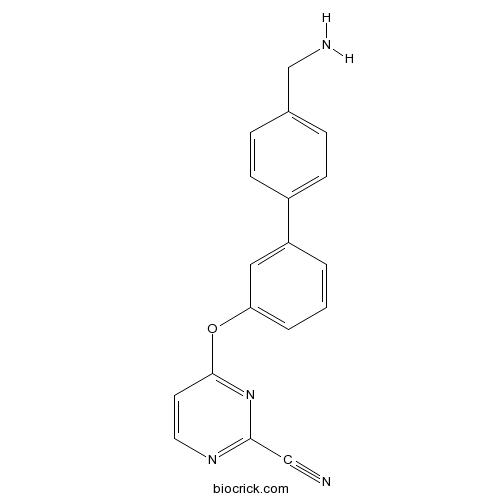
-
BCC2030
Vaniprevir
Vaniprevir (MK-7009) is a non-covalent competitive inhibitor of the hepatitis C virus (HCV) NS3/4A protease.
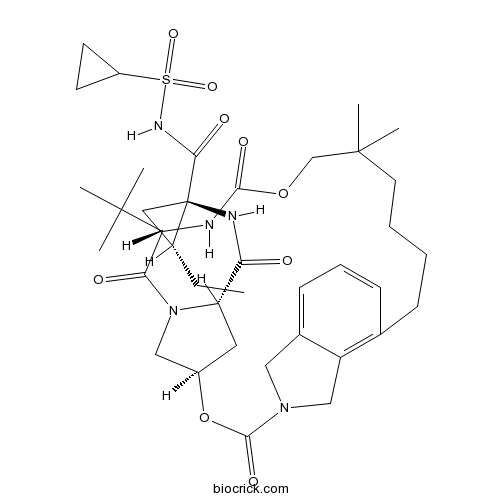
-
BCC1949
Simeprevir
Simeprevir (TMC435) is an oral and potent HCV NS3/4A protease inhibitor with a Ki of 0.36 nM, and inhibits HCV replication with an EC50 of 7.8 nM.
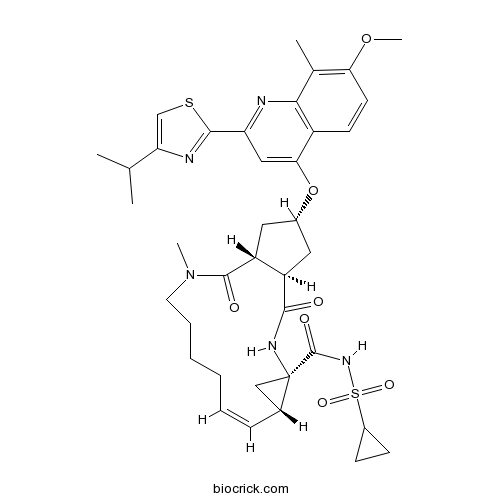
-
BCC5258
DUBs-IN-3
DUB-IN-3 is a potent deubiquitinase (USP) enzyme inhibitor extracted from reference compound 22c with an IC50 of 0.56 μM for USP8.
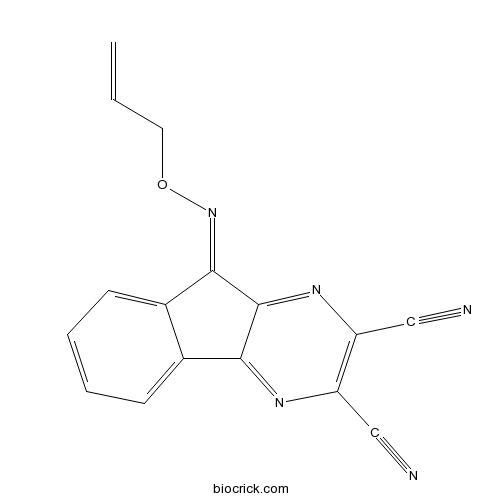
-
BCC5256
DUBs-IN-1
DUB-IN-1 is an active inhibitor of ubiquitin-specific proteases (USPs), with an IC50 of 0.24 μM for USP8.
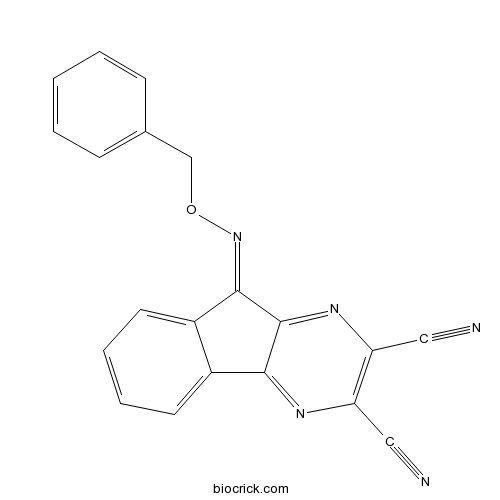
-
BCC5257
DUBs-IN-2
DUB-IN-2 is a potent deubiquitinase inhibitor with an IC50 of 0.28 μM for USP8.
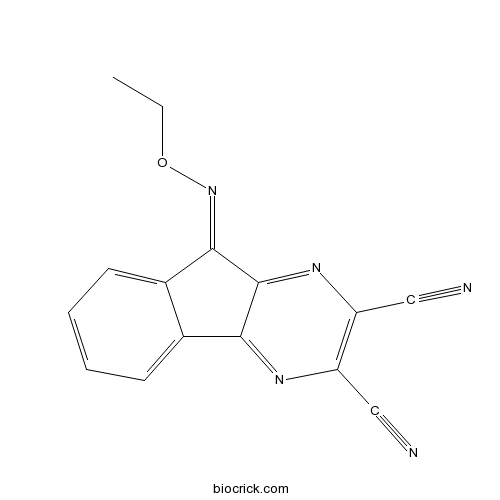
-
BCC6137
HBX 41108
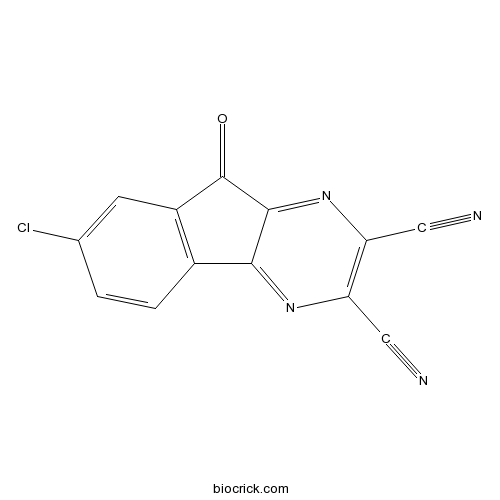
-
BCC5491
HSP990 (NVP-HSP990)
NVP-HSP990 is a potent and selective Hsp90 inhibitor, with IC50 values of 0.6, 0.8, and 8.5 nM for Hsp90α, Hsp90β, and Grp94, respectively.
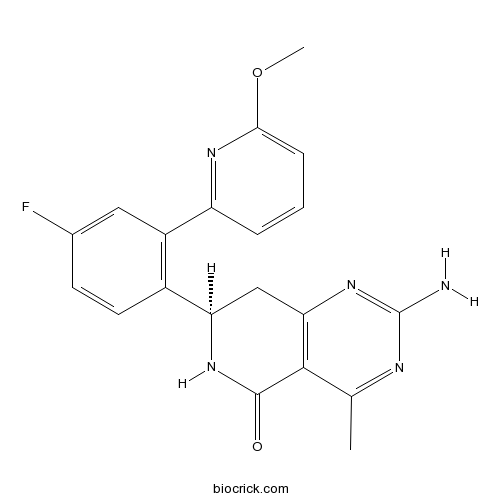
-
BCC2109
Glimepiride
Glimepiride (Glimperide) is a medium-to-long acting sulfonylurea anti-diabetic compound with an ED50 of 182 μg/kg.
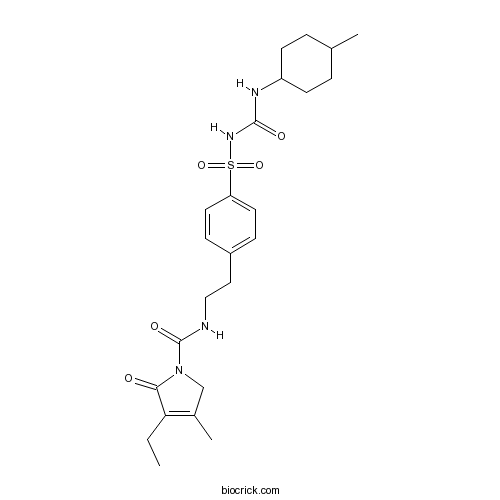
-
BCC6009
PF 429242
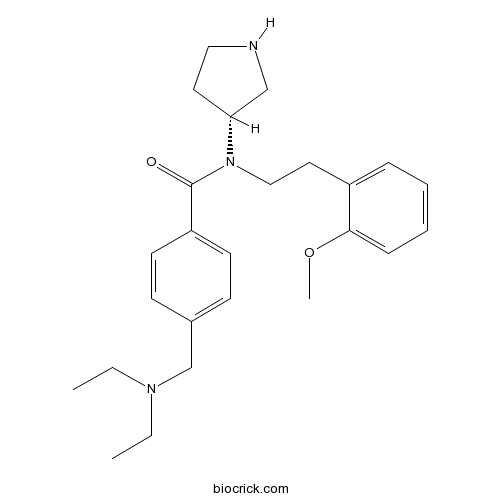
-
BCC1619
HIV-1 integrase inhibitor 2
HIV-1 integrase inhibitor 2, in the treatment of human immunodeficiency virus (HIV) infection.
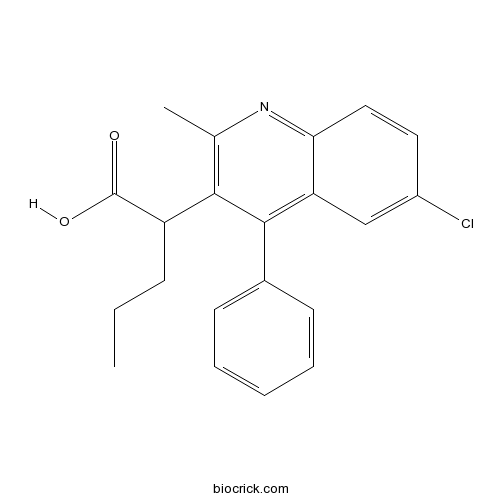
-
BCC2362
SID 26681509
SID 26681509 is a potent, reversible, competitive, and selective inhibitor of human cathepsin L with an IC50 of 56 nM. SID 26681509 inhibits in vitro propagation of malaria parasite Plasmodium falciparum and inhibits Leishmania major with IC50s of 15.4 μM and 12.5 μM, respectively. SID 26681509 shows no inhibitory activity against cathepsin G.
